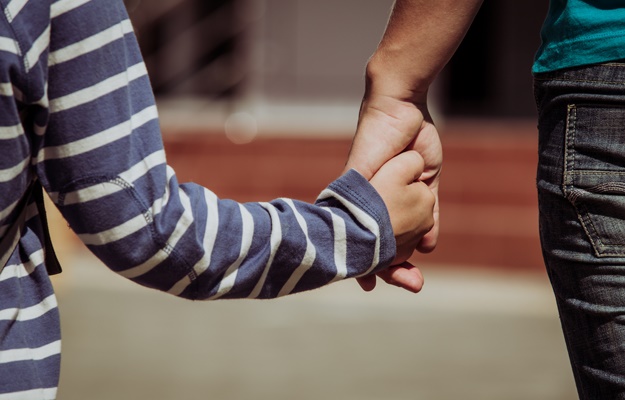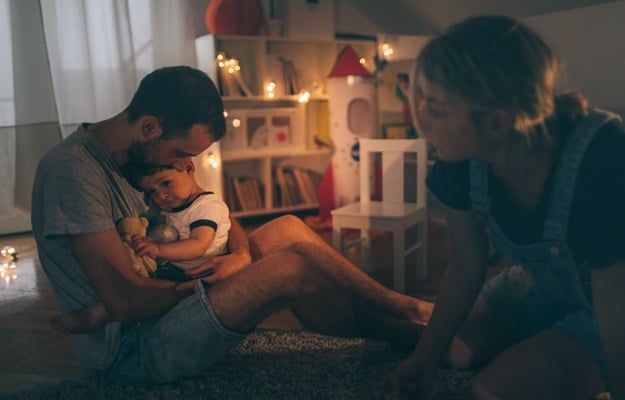
Many children will be exposed to a traumatic situation – where there is a threat to life or serious injury – at some point in their childhood. Such events can range from serious road or sporting accidents, to experiences of violence or abuse. They may be experienced directly by the child, or indirectly, where the child witnesses harm to someone else.
In the aftermath of a traumatic event, the focus is often, understandably, on the child’s physical well-being and safety. However, research has now shown that such experiences can also have a substantial impact on children’s psychological well-being – regardless of whether or not they were physically injured.
Also read: Children and trauma: when bad stuff happens
What is PTSD?
One psychological problem that can arise following trauma exposure is post-traumatic stress disorder (PTSD). PTSD is characterised by a range of symptoms, including intrusive memories of the trauma, such as nightmares or flashbacks, and avoidance of people, places or things that are related to it. There may also be intense experiences of agitation, including sleep difficulties, or being easily startled, and feelings of intense anger, low mood, or vulnerability.
PTSD symptoms can be quite common in the weeks after a traumatic event, and may be part of normal recovery. However, if children still have significant symptoms beyond three to six months, their PTSD is likely to be persistent and need psychological intervention. Currently, around 10-20% of young people are estimated to experience persistent PTSD after exposure to a single incident of trauma.
When you consider the large number of children and teens involved in serious accidental injuries each year (thousands are affected by road accidents alone) this means many young people may be suffering from PTSD. Understanding how we can help them to achieve better psychological outcomes is an important goal.
Also read: How witnessing violence can harm your child's mental health
What parents should and shouldn't do
One key factor associated with better psychological recovery is the extent to which people feel supported by those around them. For children, parents are often the key source of support – yet they can feel unsure about the best way to respond to their child’s psychological needs.
Understandably, parents have concerns about their child being harmed in the future, and may feel a need to provide extra care and protection. They may try to keep their child away from situations that might remind them of their traumatic experience. On top of this, parents are often managing their own distress relating to their child’s trauma, even if they weren’t involved themselves.
Also read: How to help kids cope with anxiety
In a recent study of children following exposure to a single trauma, we examined how their parents’ response affected the child’s psychological recovery over a six-month period.
We found that parents being extremely focused on threat and vulnerability was associated with poorer recovery of child PTSD symptoms. This included using strongly negative language (for example “You could have died,” or “I don’t think we’ll ever be the same”) when discussing the trauma with their child.
It is important for parents to talk to their child about their thoughts and feelings after traumatic events. But being overly focused on how unsafe or vulnerable the child was, on blame, or on how much the event has negatively changed the child, can mean children then develop their own heightened sense of being very vulnerable or unsafe. This can impede their recovery.
Another problem came from parents encouraging children to avoid things that might remind them of the event and cause distress. For example, discouraging children from going bike riding if their trauma was a bike accident, or avoiding the place where the accident occurred. Where parents said that they encouraged avoidance in this way, children were more likely to have persistent PTSD symptoms six months later. Again, a tendency for children to adopt their parents’ responses seems to partially explain this link.
Also read: How to talk to your child about suicide

Overall, evidence suggests that post-trauma, children may model their coping style, at least in part, on how their parent responds. And some parental responses, despite being a natural reaction to a highly distressing experience, may actually maintain child PTSD symptoms.
This research is part of a growing body of evidence which suggests that parents play an important role in supporting their child to overcome the potential psychological consequences of trauma exposure. Of course, multiple factors can influence post-trauma distress, and even with the best possible support systems children may go on to develop PTSD and require professional support.
![]() Nonetheless, focus is urgently needed on working out how to help parents provide the best kind of support. Working with hospital emergency departments and other services providing care for children exposed to trauma would help to set out such guidance – and help parents feel confident about the best ways to support their child’s psychological recovery.
Nonetheless, focus is urgently needed on working out how to help parents provide the best kind of support. Working with hospital emergency departments and other services providing care for children exposed to trauma would help to set out such guidance – and help parents feel confident about the best ways to support their child’s psychological recovery.
Rachel Hiller, Prize Research Fellow in Developmental Psychopathology, and Sarah Halligan, Professor of Child and Family Mental Health, both at the University of Bath. This article was originally published on The Conversation. Read the original article.
Have you had to help your child through something traumatic? Email us at chatback@parent24.com and we may publish your comments.
Read more:
- Can yoga help girls heal from trauma?
- Teaching kids about trauma with Elmo, Big Bird and everyone's favourite Cookie Monster
- Sulky kids and broken hearts: Help your kids deal with rejection with these 5 steps
Sign up to our weekly newsletter to receive Parent24 stories directly to your inbox.




 Publications
Publications
 Partners
Partners














